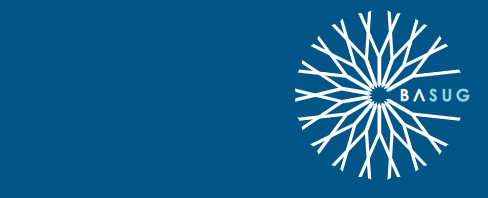The San Diego SAS Users Group (SANDS) is excited to announce an upcoming 2024 event for our SAS user community at Pfizer on January 31, 2024. Our sponsor, SAS Institute, will conduct a 2-hour workshop, a 50-minute presentation and we’ll have two other presentations. Please visit our website at http://sandsug.weebly.com/ for details about the upcoming meeting and be sure to register for the event on Eventbrite.
Our SANDS Executive Committee (EC) hopes you will attend our upcoming SAS workshop and presentations, and meet our presenters. This event will help to boost your skills and knowledge about popular SAS data, statistical and programming techniques.
Date: Wednesday, January 31, 2024
Registration: $20 registration fee (Students, Speakers and EC are "free").
Location: Pfizer La Jolla Campus | 10770 Science Center Drive | Room CB2 | San Diego, CA 92121.
Agenda:
3:00 pm – 5:00 pm (Workshop)
Tools and Processes to Prepare you for SAS 9.4 (M8) and Beyond and What’s New in SAS Viya
By Shannon Moore, Senior Systems Engineer; SAS Institute Inc.
This workshop session will be divided into two parts. The first will discuss the new security and system features of SAS 9.4 M8 and the tools SAS provides to assist with planning an upgrade. These include SAS 9 Content Assessment and System Evaluation. The second session will be a broad overview of the latest features in SAS Viya including SAS Studio and Visual Analytics.
Bio: Shannon Moore has been with SAS since 1997 and is a charter member of the Customer Success organization. His areas of emphasis include Business Analytics and programming. Lately he has been assisting clients with SAS 9 Content Assessment and SAS Viya migration preparation and demonstrations. He is the recipient of a SAS Americas Sales Innovation Award and holds SAS Certifications in SAS 9 and Viya Programming and Interactive Reporting using Visual Analytics. He has experience in many industries including Health and Life Sciences, Financial Services and Government. Shannon graduated from the University of Colorado, Boulder.
5:00 pm – 6:00 pm (Dinner and Networking)
Following our workshop, attendees will enjoy an “informal” dinner – offering an opportunity to eat, meet and network with attendees.
6:00 pm – 6:10 pm (Welcome and Introduction)
Following dinner, our SANDS President, Wei Cheng, will welcome and introduce the SANDS Executive Committee (EC) members to our user community.
6:15 pm – 7:05 pm (Featured Presentation – 50-minutes)
Our “featured” presenter, Rebecca Callaway, SAS Institute Instructor will present, “Why Choose between SAS DATA Step or PROC SQL when you have both.”
This presentation shows that PROC SQL and the DATA step both work in similar scenarios and when to use one versus the other.
Bio: Rebecca Callaway has worked as an instructor at SAS since May 2000. Rebecca earned her bachelor’s degree in Math/Statistics from Saint Olaf College in Northfield, MN. Prior to joining SAS, she worked as an analyst for several companies where she honed her SAS skills analyzing data for credit card companies and developing regression models to predict customer responses to direct mail. She enjoys helping other SAS users improve their SAS skills to make their jobs easier and more efficient. Rebecca lives in San Diego, CA with her husband Ken and their cat Zigmo.
7:10 pm – 7:40 pm (Presentation #2 – 30-minutes)
Our second presenter, Ryan Lafler, Chief Data Scientist and Lead Consultant of Premier Analytics Consulting, will deliver a 30-minute presentation, “Charting Your Machine Learning Roadmap.”
This presentation is an audience-driven discussion about leveraging Machine Learning algorithms, Neural Network architectures, and Artificial Intelligence systems to derive data-driven insights and automate critical tasks for supervised, semi-supervised, and unsupervised learning. Several cutting-edge Machine Learning algorithms and Neural Network architectures are presented to attendees allowing them to chart their own development roadmap for implementing different Machine Learning models. Several topics are discussed including the differences underlying Statistical Analysis, Machine Learning, and Deep Learning; common Machine Learning tasks and purposes; supervised vs. unsupervised Machine Learning; the advantages and disadvantages of any Machine Learning algorithm; the parameters and hyperparameters of Machine Learning models; model overfitting and underfitting; and strategies for mitigating model biasedness.
Bio: Ryan Lafler is the Founder, C.E.O., Chief Data Scientist, and Lead Consultant at Premier Analytics Consulting, LCC, a consulting firm that specializes in developing data-driven solutions and providing specialized services and training in Big Data Science for our clients. Ryan also serves as an Adjunct Professor at San Diego State University for the Master of Science Big Data Analytics (BDA) Program and the Department of Mathematics and Statistics. Ryan’s interests and passions include programming in Python, R, SAS, JavaScript (using React and Node), and SQL for all things concerning data science and artificial intelligence. He specializes in machine learning, deep learning, computer vision modeling, statistical analysis, data visualization, full-stack application development, distributed processing of big unstructured data, and integrating data together to conduct multivariate analysis.
He received his Master of Science in Big Data Analytics following the successful defense and publication of his Thesis in May 2023 from San Diego State University. He graduated Magna cum Laude with a Bachelor of Science in Statistics and a Minor in Quantitative Economics from San Diego State University.
7:45 pm – 8:00 pm (Presentation #3 – 15-minutes)
Our third and final presenter, Kirk Paul “sasNerd” Lafler, Data Scientist and Consultant, will deliver a 15-minute presentation, “Soft Skills to Gain a Competitive Edge in the 21st Century Job Market.”
Today's workforce requires two types of skills: hard skills or job-related knowledge and abilities to help us perform specific job responsibilities effectively, and soft skills or personal qualities that help us thrive in the workplace. Examples of hard skills include SAS, SQL and Python programming, data analysis, project management, and market research. Soft skills on the other hand are not always measurable and consist of non-technical skills that describe the characteristics, attributes, and traits that are associated with one's personality. Soft skills enable effective and harmonious interaction with others in the workplace and are acquired from the roles and/or experiences we have had. The good news is that soft skills can be learned and, more importantly, provide you with a competitive edge in today's demanding and evolving workplace.
Bio: Kirk Paul “sasNerd” Lafler is an educator, developer, programmer, consultant, and data scientist; currently teaching as a lecturer and adjunct professor at San Diego State University; and teaching SAS, SQL, Python, Excel, and cloud-based technology courses to users around the world. Kirk has decades of programming experience and specializes in SAS software, SQL, RDBMS technologies (Oracle, SQL-Server, Teradata, DB2), Python, and other languages and productivity tools. Kirk is the author of the popular PROC SQL: Beyond the Basics Using SAS, Third Edition (SAS Press. 2019) and is actively involved with SAS, SQL, Python, R, ML, and cloud-computing user groups, conferences, and blogs as an Invited speaker, educator, keynote, and leader; and is the recipient of 28 “Best” contributed paper, hands-on workshop (HOW), and poster awards.
8:00 pm – 8:15 pm (Closing Session)
Thank you and closing comments to all attendees.
The AI and analytics experience for business leaders, technical users and SAS partners
At SAS Innovate, there's something for everyone and every role – from top executives to in-the-trenches data crunchers to our partners across industries. Here’s what we have in store for you: 9 pre-conference sessions, 18 hands-on workshops, 20+ certification exams, 70+ super demos, 74+ breakout sessions, daily keynote sessions, and 1 epic rooftop party! Whether you’re flying solo or heading to Vegas with your entire team, it's a no-risk, all-reward opportunity to learn how to succeed with AI and analytics.
Give us four days at SAS Innovate, and we know you’ll be all in on AI, too.
Learn about our featured keynotes (you'll love them) and register today. The early bird rate has been extended. Register by March 18 for $695!
We look forward to seeing you there.
Did you miss last year's conference? Our group hub let's you get a look at the on-demand sessions.
Many programming tasks require merging time series of varying frequency. For instance you might have three datasets (YEAR, QTR, and MONTH) of data, each with eponymous frequency and sorted by common id and date variables. Producing a monthly file with the most recent quarterly and yearly data is a hierarchical last-observation-carried-forward (LOCF) task. Or you may have three irregular times series (ADMISSIONS, SERVICES, TESTRESULTS), in which you want to capture the latest data from each source at every date encountered (event-based LOCF). These are tasks often left poorly optimized by most SQL-based languages, in which row order is ignored in the interests of optimizing table manipulation.
This presentation shows how to use conditional SET statements in the SAS® DATA step to update specific portions of the program data vector (i.e. the YEAR variables or the QTR variables) to carry forward low frequency data to multiple subsequent high frequency records. A similar approach works just as well for carrying forward data from irregular time series. We’ll also show how to use “sentinel variables” as a means of controlling the maximum time-span data is carried forward, i.e. how to remove historical data that has become “stale.” Finally, we will demonstrate how to modify these techniques to carry future observations backward, without re-sorting data.
Presented by Mark Keintz
Mark Keintz has been using SAS® since it was documented in one book. His interests are largely in development of applications for financial research and education, addressed in several presentations at SAS Global Forums and various regional SAS user groups. Mark's primary SAS expertise is in DATA step programming, hash programming techniques, efficient use of large data sets, and macro programming.
REGISTER for this virtual event today.
This year's annual Iowa SAS® Users Group conference will be held on May 13th, 2024. Our in-person conference is a great opportunity for Iowa SAS® users and their colleagues and friends to get together for team building, to network and meet or get reacquainted with other fellow SAS® users, exchange ideas, and potentially discover and/or share job/contracting opportunities.
The program will allow you to choose from 3 concurrent presentation sessions that will be held in separate rooms. Presentation sessions are scheduled to allow for 10 minute breaks in between sessions. This year, we have invited SAS speakers, Lincoln H. Groves, Jacqueline (Jackie) Johnson and Charu Shankar. We also welcome back professional trainer/"SASNerd" Kirk Lafler, and will also have local SAS® guru Simon Geletta joining us to share some of his knowledge with us as well.
During morning registration time and lunch break, you will have a valuable opportunity to share concepts and ideas, and for networking, to expand your familiarity with your fellow SAS® users within the community here in the Des Moines Metro area. We encourage you to bring your business cards and expand your network within the SAS® community. There will be a bulletin board where contract opportunities, related events, and other announcements can be affixed. We also encourage hiring managers and consultants seeking contracts to bring your job requirements in hard copy for distribution.
We'll end the conference by holding a closing session where door-prizes (which include a laptop computer and much, much more) are given away before we wrap up the conference. You don't want to miss the closing session, so stick around!
To view the full Conference Program please go to https://www.iowasasuser.org
Register today!
12:30pm - 1:00pm
Registration and Lunch
1:00pm - 1:05pm
Welcome Remarks Kara Matheson, SHRUG President
1:05pm - 1:20pm
What's New at SAS? Alice Yuan, SAS Canada
1:20pm 2:05pm
R Integration with SAS Viya Jared Linck, SAS US
Please join us for an interactive session on R integration with SAS Viya. The session will include a presentation and live demonstration of how SAS and R can be used together to optimize how you work with data and analytics. We will begin with a brief overview of the various integration points between SAS and open source tools like R, Python, and web apps using APIs. This integration includes both directions of communication: from SAS out to open-source tools, and from open-source tools into SAS. We will then provide a live demonstration of specific methods for integrating R with your existing and future SAS workflows. Time will be reserved for questions and discussion of strategies and tips to take advantage of the best of both SAS and R in your daily work.
The session will be led by Jared Linck, PhD, a Senior Solutions Architect at SAS. Jared specializes in the successful integration of SAS and open-source tools -- such as Python, R, and web apps -- to enhance collaboration among users with different skillsets and to help customers get the most out of their data and analytics, using whichever programming languages or graphical interfaces they prefer. Before joining SAS in 2019, Jared spent ten years on the faculty at the University of Maryland, where he primarily worked in R to conduct advanced data analytic methods to extract actionable information from real-world (i.e., messy!) data. He earned a PhD in Cognitive Psychology from The Pennsylvania State University.
Note: this will be a virtual presentation.
2:05pm - 2:30pm
Presentation TBD
2:30pm - 3:00pm
Networking Break
3:00pm - 3:25pm
Trivia and Prize
3:25pm - 3:35pm
Closing Remarks
Register Now
8h30 - 9h00
Inscription et déjeuner continental
9h00 - 9h05
Mot de bienvenue Eric Lacombe, MONSUG
9h05 - 9h20
SAS Updates Alice Yuan, SAS Canada
(Présenté en anglais) A quick look at new developments in the world of SAS.
9h20 - 10h10
Trucs et astuces avec SAS Enterprise Guide et SAS Studio Jean Hardy, Services conseils Hardy
Les interfaces-utilisateurs SAS Entreprise Guide et SAS Studio comportent beaucoup de fonctionnalités destinées à faciliter la programmation en langage SAS. Cette présentation en illustre plusieurs qui passent parfois sous le radar des utilisateurs, même expérimentés. On y traitera notamment du débogueur de l'étape DATA, de la comparaison de programmes, de l'affichage simultané de plusieurs visionneuses, de la possibilité de figer les volets, de la visionneuse de variables macro, de multiples points de vue d'un même programme, de l'édition de blocs de texte et de plusieurs autres astuces. La présentation ne cherche pas à comparer les deux interfaces mais à mieux outiller les utilisateurs de l'une ou l'autre. Pour tirer profit de cette présentation, les participants doivent être familiers avec SAS Enterprise Guide (versions 7.1 à 8.3) ou encore avec SAS Studio (version 3.8 à 2023.10).
10h10 - 10h35
Pause réseautage
10h35 - 11h00
Un outil pour évaluer la sécurité de votre écosystème SAS Yves Jalbert, Banque Nationale du Canada
Votre système SAS et vos données sont-elles sécurisées? Avant ou après un désastre, voici un outil pour évaluer et faire le suivi de la sécurité de votre serveur SAS.
11h00 - 11h30
Préparez sa migration à SAS Viya® ou quelles questions se poser pour bien la réussir Christian Lamarche, Banque Nationale du Canada
La migration de SAS® 9 vers SAS® Viya® n'est pas juste un changement de version; c'est un changement de paradigme puisque c'est souvent la première incursion vers l'infonuagique et vient avec une multitude de questions. Cette présentation tente de démystifier qu'elles sont les questions à se poser pour bien débuter votre projet de migration.
11h30 - 11h45
Tirage et mot de la fin
Register Now














